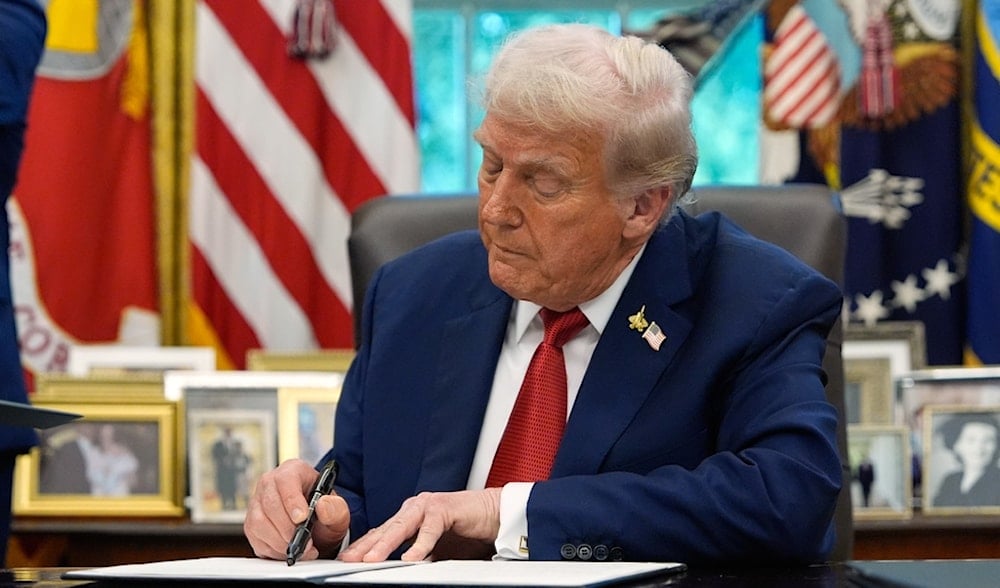Trump forcing ‘upfront’ South Korea investment despite economic risks
Trump says South Korea will pay $350 billion "upfront" in investments, amid stalled trade negotiations and growing concerns in Seoul over economic risks.
-

President Donald Trump signs a presidential memorandum on the death penalty in the District of Columbia in the Oval Office at the White House, Thursday, Sept. 25, 2025, in Washington. (AP)
South Korea will provide $350 billion in investments “upfront”, US President Donald Trump reaffirmed, despite repeated warnings from Seoul that such terms could trigger a financial crisis without adequate safeguards.
In July, South Korea committed to investing $350 billion into US-based projects. However, Seoul has resisted Washington’s push for direct control over the funds. Negotiations remain at a standstill, with South Korean officials citing concerns over national interests and commercial feasibility.
Earlier this month, Trump finalized a trade agreement with Japan, under which Tokyo pledged $550 billion toward US projects. In return, Washington agreed to reduce tariffs on Japanese automobile imports and other key products. US officials have urged Seoul to adopt a similar framework.
“We have in Japan it's $550 billion, South Korea's $350 billion. That's upfront,” Trump told reporters on Thursday in the Oval Office, promoting the financial impact of his administration’s tariff policies.
South Korea treads cautiously
Unlike Japan, South Korea has been reluctant to structure its investment under the same terms. President Lee Jae Myung warned last week that Seoul's economy could face severe pressure without safeguards, including a potential currency swap.
Without such protections, “South Korea's economy could be plunged into crisis,” Lee told Reuters.
South Korean officials maintain that negotiations must align with national economic stability and transparency. One official reiterated the government’s position, stating it would only proceed under terms that serve the country’s interests and ensure feasibility.
A senior official from the finance ministry, accompanying President Lee during his US visit, declined to comment specifically on Trump’s “upfront” remarks.
Trump forcing Seoul's hand
US pressure intensified following Japan's agreement, which included $550 billion in funding for various US projects. As a result, Japanese exports now face a reduced 15% tariff, placing South Korean manufacturers, particularly in the auto sector, at a disadvantage.
However, South Korean officials argue that replicating Japan’s terms is not feasible. The country’s foreign currency reserves are significantly smaller, and there is no active currency swap agreement with the US.
Analysts believe the prospects of a currency swap remain slim, and South Korean negotiators are instead advocating for loan-based structures rather than direct investments. They are also pressing Washington for mechanisms to confirm that proposed projects are commercially viable.
Trump’s insistence on upfront investments has added pressure to already fragile trade talks, raising political and economic doubts. Investors are increasingly wary that Seoul may be forced into an unfavorable agreement, or no deal at all.
Read more: South Korea defies US push for Japan-like trade agreement

 3 Min Read
3 Min Read










